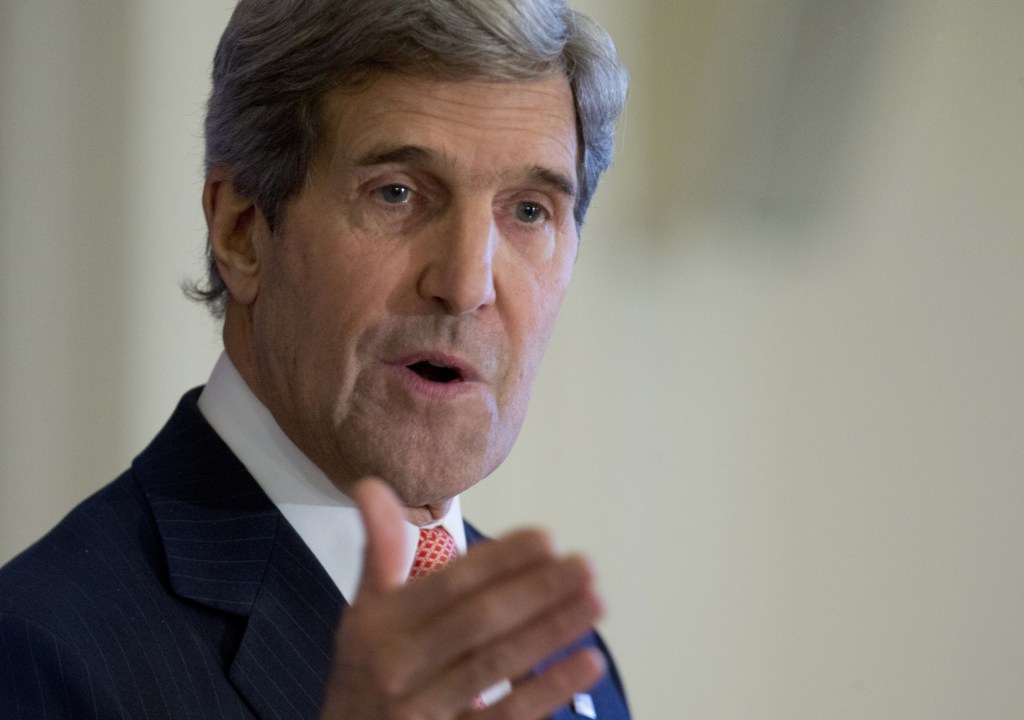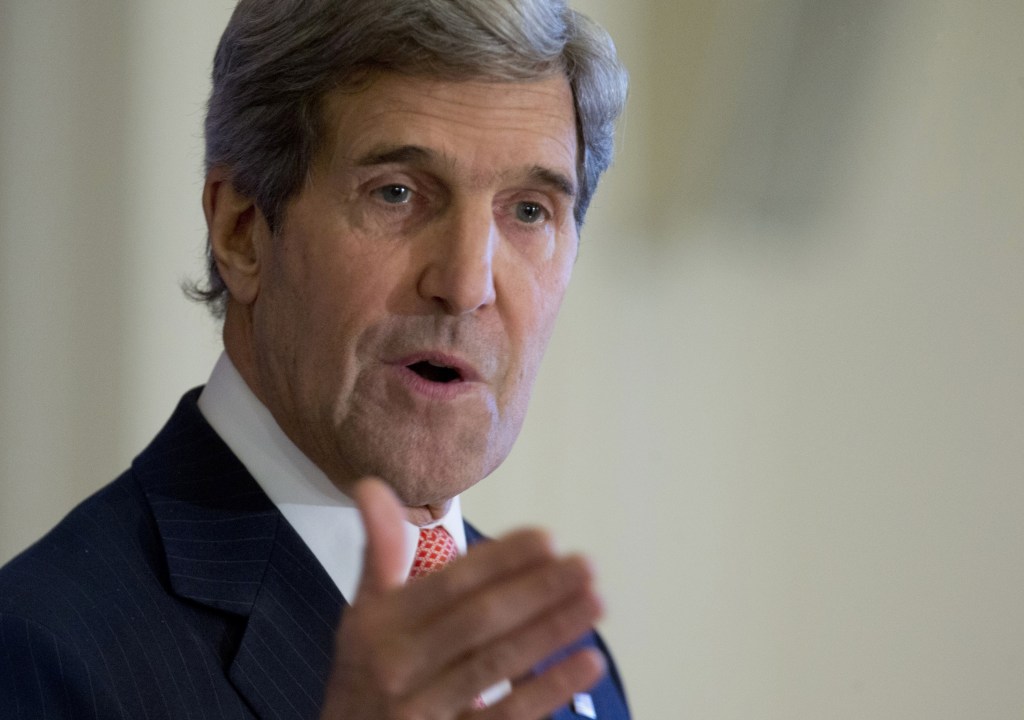WASHINGTON — Secretary of State John Kerry said Wednesday that the U.S. and Afghanistan have agreed on the final language of a bilateral security agreement that would govern the presence of American troops in the country after the NATO combat mission ends next year.
Kerry said the language, which followed months of tense negotiations, will be reflected in the draft proposal being presented Thursday to 3,000 prominent Afghans from across the nation when they meet in Kabul to consider the agreement.
Approval by the council of elders, known as the Loya Jirga, is not guaranteed. The group can revise or reject any clause of the draft agreement, and a flat-out rejection would most likely prevent the Afghan government from signing it. The Afghan parliament also needs to approve it.
“We have agreed on the language that would be submitted to the Loya Jirga, but they have to pass it,” Kerry said during a news conference with Australian officials and Defense Secretary Chuck Hagel.
While U.S. officials have not yet disclosed the number of U.S. troops they want to keep in Afghanistan post-2014, Kerry said the role of the U.S. military would be “limited.”
“It is entirely train, equip and assist. There is no combat role for United States forces, and the bilateral security agreement is a way to try to clarify for Afghans and for United States military forces exactly what the rules are with respect to that ongoing relationship,” he said.
“It is very important for President Karzai to know that issues that he has raised with us for many years have been properly addressed. It is very important for us to know that issues we have raised with him over the years have been properly addressed,” he said.
State Department spokeswoman Jen Psaki said Kerry spoke with Karzai on Wednesday, the second call in two days. On Tuesday, Karzai invited Kerry to attend the Loya Jirga. Kerry has no plans to attend, but Psaki said Kerry offered the idea of providing reassurances about the U.S.-Afghan security relationship in addressing past issues, such as civilians casualties, which have been discussed many times. Psaki said that those assurances might be offered in the form of a letter or another format, but said nothing had been decided.
The deaths of Afghan civilians at the hands of U.S.-led NATO forces have been a sensitive issue in the U.S.-Afghanistan relationship, although more Afghan civilians die as a result of insurgent attacks.
Kerry emphasized that the assurances discussed were never going to be in the form of an apology.
“Let me be clear. President Karzai didn’t ask for an apology,” Kerry said. “There was no discussion of an apology.”
Kerry added: “He didn’t ask for it, we’re not discussing it.”
Deep divisions in Afghanistan over legal immunity for American soldiers and contractors as well as night raids have threatened to derail diplomatic efforts to keep thousands of American soldiers in the country beyond next year’s withdrawal deadline. The issue has taken on added urgency amid a spike in violence that has raised fears that Afghan forces aren’t ready to take over the battle against the Taliban and al-Qaida-linked militants without more training.
Send questions/comments to the editors.




Success. Please wait for the page to reload. If the page does not reload within 5 seconds, please refresh the page.
Enter your email and password to access comments.
Hi, to comment on stories you must . This profile is in addition to your subscription and website login.
Already have a commenting profile? .
Invalid username/password.
Please check your email to confirm and complete your registration.
Only subscribers are eligible to post comments. Please subscribe or login first for digital access. Here’s why.
Use the form below to reset your password. When you've submitted your account email, we will send an email with a reset code.